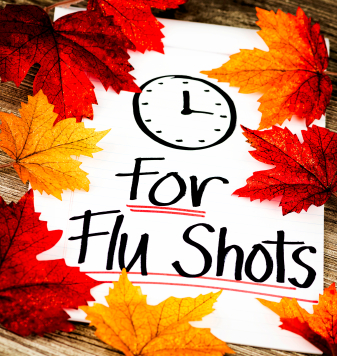
It’s that time of year again. No, not the holiday season. Flu season. Deciding whether or not to get a flu shot is a personal choice, and many Americans elect not to get them for themselves. However, while you have the choice to bypass getting vaccinated, you shouldn’t necessarily let your children go without it.
Young children are at a higher risk of catching influenza, and every year, many get sick and end up having life-threatening complications that require immediate medical attention. In order to protect them from this dangerous illness, make an appointment for them to receive a shot or nasal spray. The type of vaccination they receive will primarily depend on their age.
If you’re the mother of a child between 2-7, you can save them from the pain of receiving a shot by electing to have them get vaccinated with a nasal spray. In fact, it is proven to be more effective than a shot for those in this age range. According to a Slate article published on October 3, 2013, kids between the ages of 2-7 who got the spray in 2012 were 83% less likely to get the flu than those who weren’t vaccinated. That efficacy rate dropped to only 48% for kids who got the shot.

Unfortunately, if your child is under two, the nasal spray option is not available, as it hasn’t been approved for children that young. But just because they can’t be vaccinated without a needle doesn’t mean they should avoid it. In fact, influenza complications are most common in kids younger than two, so it’s even more important that you schedule an appointment for them to receive the flu shot. Additionally, those younger than 6 months cannot be vaccinated in any way. The best way to help them avoid getting sick is to ensure everyone around them is vaccinated.
To help your little one overcome their fears of getting a shot, Parents.com suggests telling them the truth about what to expect, applying anesthetic cream that numbs the skin 20 minutes before the appointment and even providing a reward as an incentive for them making it through the process. In the case your child overreacts, let the physician take over.
Following the vaccination appointment, be sure to watch out for immediate side effects. While flu vaccines are intended to protect against contracting a seasonal illness, they do pose risks. Some common symptoms included soreness in the area of the shot, headaches, and fever. In rare cases, complications like Guillain-Barre syndrome develop as well as severe allergic reactions. But the chances of these complications occurring are close to one in a million.
In all, the benefits of getting your children vaccinated heavily outweigh the consequences, according to most experts. It is important that children six months to five years old be vaccinated every flu season, which runs from October through January. Children with asthma, diabetes, and brain or nervous system disorders are especially at high risk to endure complications if they contract the flu, so getting them vaccinated early on each flu season should be a high priority.






